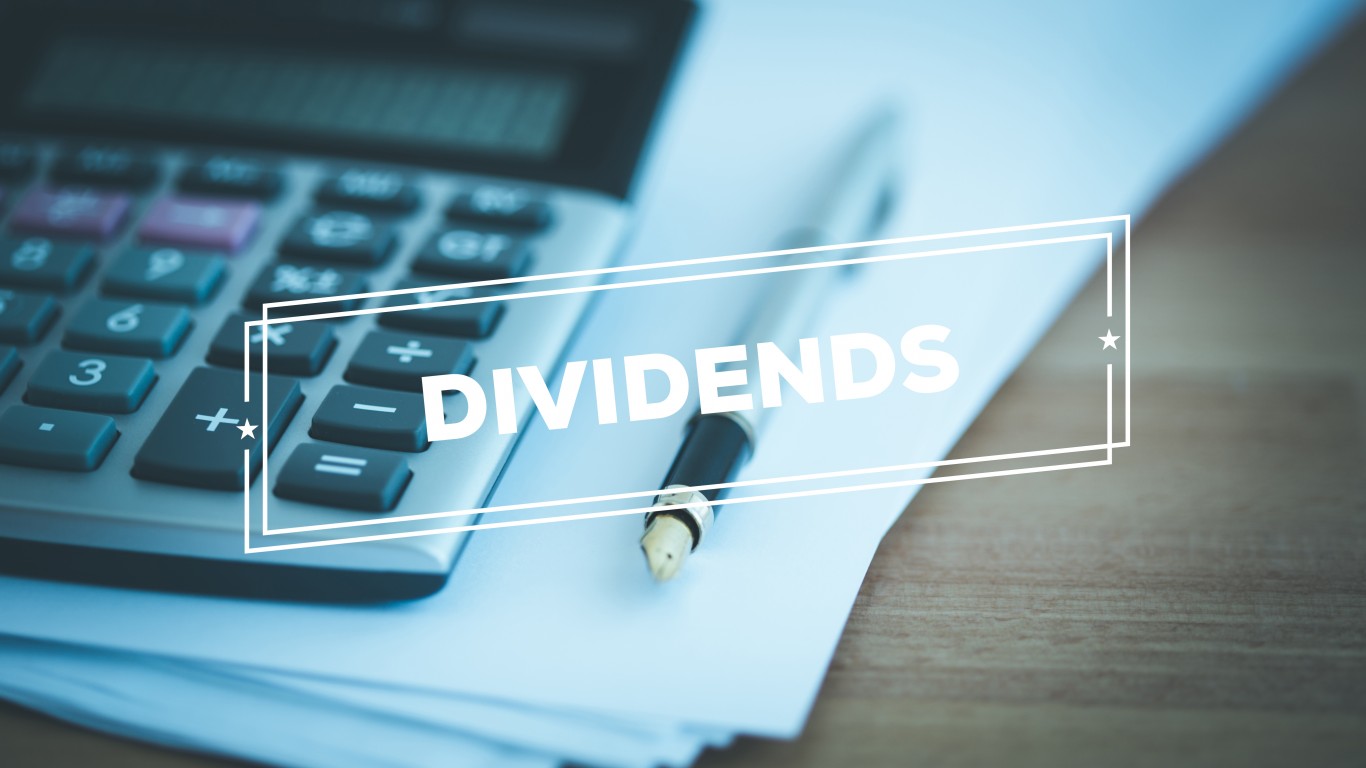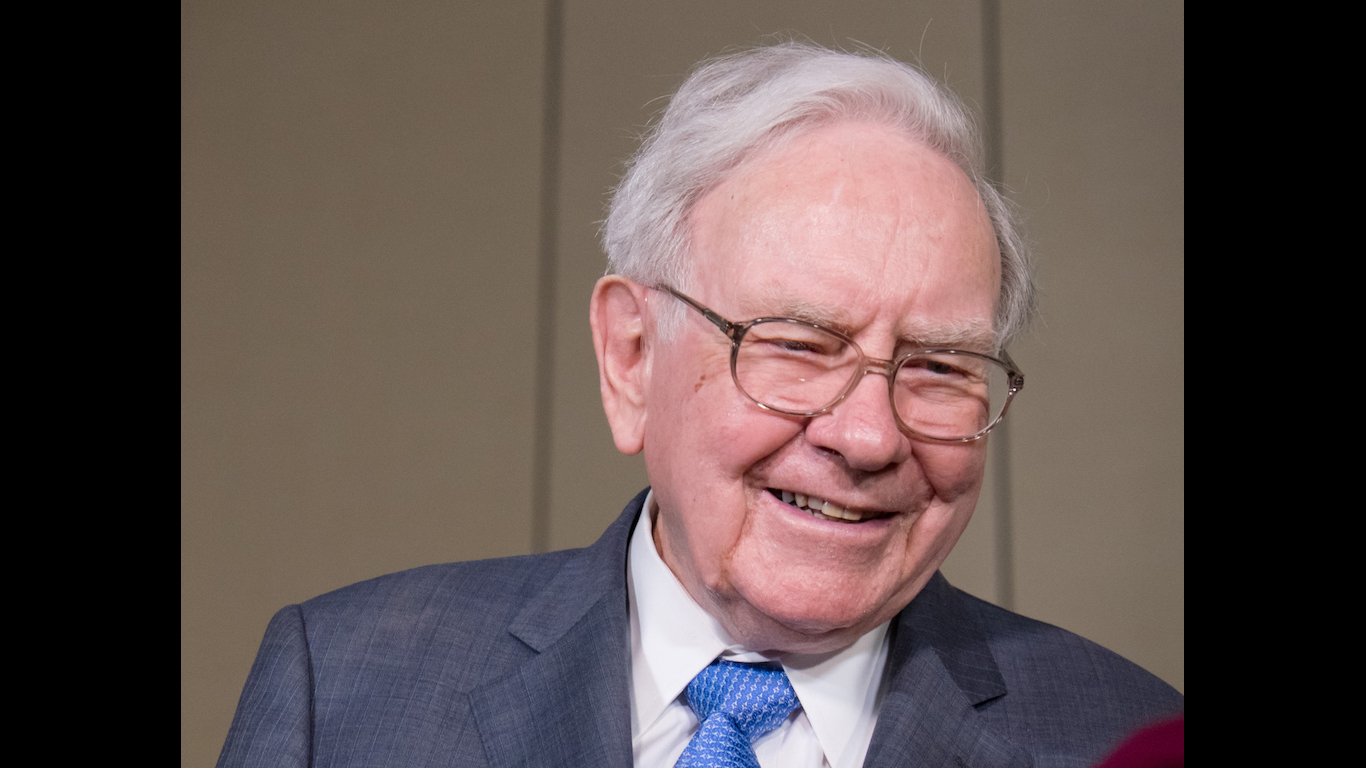
The bull market died as the COVID-19 pandemic crushed the economy, and it rapidly turned into a bear market. While many investors have been confused about the massive sell-off and subsequent rapid recovery cycle in less than 90 days, it is not easy to find an investor who is unwilling to admit this a recession. Investors generally have to expect lower earnings ahead, and lower earnings can translate to lower dividends. Some bold and defiant companies are still managing to raise their dividends, even as economic numbers and earnings in general are cratering.
March was a time of panic, with the Dow Jones industrials down almost 40% and the S&P 500 down 35% from their respective highs seen in February. Before the strong April recovery, there was a sudden and growing concern in the stock market that recession-proof utilities, telecoms, consumer products, pockets within technology and other very defensive stock sectors were facing imminent financial losses and declining cash flows that would pressure the safest dividends over the past decade.
Most investors who buy income stocks tend to look at normalized earnings, cash flow, balance sheets and payout ratios to determine a dividend’s safety. The panic in the past 60 to 90 days already has forced more companies to lower or suspend their dividends than all the announced dividend cuts in the past decade combined. The economy is now bad enough and it is hard enough to find strong balance sheets that even Warren Buffett has been too scared to buy, even the best dividend stocks.
The “sell in May and go away” theme may still be arguable, but fears of this recession turning into a depression have been countered by trillions of stimulus dollars and the gradual reopening of the economy. It turns out that the management teams at the highest quality companies know how to protect their earnings and defend their dividends even in very bad economies.
The S&P 500 Dividend Aristocrats are the companies that have managed to raise their payouts for 25 consecutive years or more. They might not be recession-proof and may not all have extreme dividend yields, but they may still attract investors ahead. Some other companies raising their dividends are not among the aristocrats, but any company strongly deserves equal praise at a time when unemployment is reaching depression-era levels and when consumer and business spending had rapidly shifted away from traditional retail.
24/7 Wall St. has gone back to the end of March, which was the “peak panic” period, through the start of May and tracked 20 companies that have boldly defied the crashing economy by announcing dividend hikes. Some of these companies may not be entirely recession-proof, but their executives are trying to tell their shareholders that they have the visibility and strong enough cash flow to get through the recession. Every company should have come to the realization after the first week or second week in March that massive layoffs and furloughs, sending workers home, closures of stores and schools all added up to a crashing gross domestic product and an instant recession.
Here are 20 bold companies that have defied the odds by raising their dividends, after already knowing they were facing a very deep recession.
American Water Works Co. Inc. (NYSE: AWK) announced on April 29 that it was hiking its dividend payout by 10% to $0.55 per common share. This was after it and other utilities saw a major drop in their stock prices after sending notices that customers would not be cut off as the recession fears were growing. Almost all utilities have seen big recoveries in their stock prices since the panic selling ended. American Water Works now has roughly a 1.8% dividend yield. Its management team has committed to hiking its dividend along with long-term earnings growth and a targeted payout ratio of 50% to 60% of net income.
Apple Inc. (NASDAQ: AAPL) has seen its stock price come roaring back above $300 after earnings, and in the last week of April, the iPhone maker hiked its dividend on top of adding yet another $50 billion on its buyback plan. Apple might even have become a $400 stock without the recession. It rewarded investors with a 6% dividend quarterly payout hike to $0.82 per share, and Apple’s dividend yield now is roughly 1.1%.
Chesapeake Utilities Corp. (NYSE: CPK) announced on May 7 that its board voted to increase its quarterly cash dividend to $0.44 per common share from $0.405. The action took its annualized dividend from $1.62 to $1.76 per share, for an 8.6% hike. The gas and electric utility confirmed that it has now paid dividends to its common shareholders for 59 consecutive years, while raising the dividend for its 17th consecutive year, and that it has doubled its dividend in the past 10 years. This small utility has scattered operations throughout Florida, Delaware, Ohio and Maryland, and its press release even stated that the utility company has no affiliation with the troubled Chesapeake Energy. Chesapeake Utilities has a 2.1% yield, based on the new higher payout.
Costco Wholesale Corp. (NASDAQ: COST) confirmed on April 15 that its sales boosts were strong as customers continue to buy in bulk for their homes as a COVID-19 winner. Costco’s board approved a quarterly increase to $0.70 per share from $0.65, with an annualized payout of $2.80 per share. Due to Costco trading at a premium against peers on earnings with higher price-to-earnings valuations, and due to how much the stock has risen, this is currently only a 0.9% dividend yield.
Delek Logistics Partners L.P. (NYSE: DKL) announced on April 21, 2020, that it was raising its quarterly cash distribution to $0.89 per common unit. This was only a 0.6% hike and took the distribution to $3.56 per unit on an annualized basis. While a small hike, not many players, even in master limited partnerships (MLPs) are raising payouts in the energy sector these days. The MLP also announced that it was reiterating its expectation to raise its distribution in 2020 by 5% over 2019 levels. Not all this is an income distribution as is customary with MLPs, but that is close to a 19% yield equivalent basis, when comparing MLP distributions to traditional dividends.
International Business Machines Corp. (NYSE: IBM) announced a dividend hike of one cent per share on April 28, 2020. While that may sound unimpressive, the yield is close to 5.2%, and this marked the 25h straight year that IBM has hiked its dividend and more than 100 years of continuous dividend payments. IBM’s long-term investors may not even have known that there had been a raging bull market, and now they have to hope that the Red Hat buyout and its strategic imperatives can lead to higher cash flows on top of debt reduction in the years ahead.
Kinder Morgan Inc. (NYSE: KMI) announced on April 22 that it was committed to raising its dividend, although this was less than what had been previously communicated to shareholders. The new quarterly cash dividend of $0.2625 per share comes to a payout of $1.05 per share annualized, and it was a 5% dividend hike. Shareholders had expected the dividend to go up to $1.25 per share annually, but the company signaled that it was prudent to make less of an increase, considering the state of the energy business and the economy. Kinder Morgan also posted a quarterly net loss after $950 million in noncash impairments of assets and goodwill. Its current yield based on the new payout is close to 7.0%.
MetLife Inc. (NYSE: MET) announced on April 28 that the insurance giant was raising its dividend to $0.46 per common share from a prior $0.44 payout, a hike of 4.5%. MetLife shares have recovered handily from the March lows, but the insurance stocks are still way down from their highs due to the low interest rate environment and fears of underlying bond defaults. MetLife shares were still down 34% from their peak when the dividend hike was announced. Its new yield will be about 5.3%.
Nasdaq Inc. (NASDAQ: NDAQ) announced on April 22 that it was raising its common share dividend by 4% to $0.49 per share. It looks like higher trading volumes are helping to bolster the exchanges. Nasdaq’s $1.96 annualized payout is roughly a 1.75% dividend yield, and it is not quite 40% of its trailing normalized earnings.
Newmont Corp. (NYSE: NEM) is the top gold player in the world, and gold has been hot while many assets classes in 2020 have not. The company announced a new quarterly dividend payment of $0.25 per common share on April 21, 2020, and that is an increase of 79% from the prior $0.14 per share quarterly dividend. Newmont was among the first of the larger gold companies to start paying a dividend, long before its Goldcorp merger, and it has said in the past that its dividends would be tied to gold price bands. Imagine if that analyst making a $3,000 gold price call gets it right.
NextEra Energy Partners L.P. (NYSE: NEP) announced on April 22 that it raised its quarterly distribution per unit to $0.555 from $0.535. This generates a yield equivalent of 4.45% for the manager of managed contracted clean energy and renewable energy projects, along with a natural gas pipeline. The partnership had announced back in January that it was looking to raise its distribution by 12% to 15% annually through at least 2024, but with April earnings it signaled it could meet long-term, distribution goals without acquisitions until 2022.
Pool Corp. (NASDAQ: POOL) announced on April 23 that its board had approved a 5% hike on the quarterly cash dividend to $0.58 per share. Pool is the largest wholesale distributor of swimming pool and related products. This still only represents a 1% dividend yield, as the stock was recently just trading 3% or so under its 52-week high. It is also up about 250% in the past five years, and it is about 1,500% or so higher since the 2009 selling zenith of the Great Recession.
Procter & Gamble Co. (NYSE: PG) was among the first of the defensive companies to warn that it was facing disruptions in China that would hurt profits, but on April 14 the company increased its quarterly dividend to $0.7907 per common share. The consumer products giant announced at the time that it was a 6% payout increase and, more importantly, it represented the 64th consecutive year that it has hiked its dividend. The company also has paid a dividend for 130 years straight, since it was incorporated in 1890, and it now has a 2.8% dividend yield.
Qualcomm Inc. (NASDAQ: QCOM) announced that its board of directors approved a 5% payout hike in its quarterly payout, from $0.62 to $0.65 per common share. The payout increase was slated for quarterly dividends payable after March 26, but on April 21 the company confirmed that dividend payment would be at the higher $0.65 per share. The market was such that it could have dialed down the dividend hike or said it wanted to be prudent with all capital spending. Whichever date an investor chooses to use, even around March 10, it was becoming rather clear to large companies that an instant recession was happening. Qualcomm has spent billions returning capital to its shareholders over time, and the new yield at the current stock price is 3.3%.
Raytheon Technologies Corp. (NYSE: RTX) announced on April 27 that it was declaring a $0.475 dividend on its common stock. After adjusting for the 2.33 factor in the post-merger situation with United Technologies, this was confirmed as an effective dividend hike after a call into the company. Raytheon’s dividend yield is now 2.8%, based on the current share price. Since its dividend hike was announced, the company subsequently has said that it was suspending share buybacks as cash flows were needed to pay for the dividends.
Southern Company (NYSE: SO) announced on April 20 that it was raising its dividend by eight cents to an annualized $2.56 per common share. The electric and gas utility player claims to serve more than 9 million customers and shows that it is committed to dividend growth. To prove it, that made 19 consecutive annual dividend hikes. The company now offers new investors a 4.4% dividend yield, and shares are still down about 21% from its highs, with a $61 billion market cap.
Travelers Companies Inc. (NYSE: TRV) announced earnings of $2.33 net per share for its first quarter on April 21. Along with other key items was the announcement that Travelers was raising its dividend payout by 4% to $0.85 per share per quarter. Its prior payout was $0.82, and its new dividend yield based on the current share price is almost 3.6%. The insurance and financial services giant, which most investors forget is a member of the Dow, mentioned that it has made 16 consecutive years of dividend increases, as a reflection of confidence in its business model. The stock looked overvalued ahead of the recession, but now it may be a discounted value stock with a solid dividend.
Watsco Inc. (NYSE: WSO) had announced its intent to increase its quarterly dividend to $1.775 per quarter, an 11% increase. While the announcement was made in better times, its board voted to proceed with the dividend hike on April 1, at a time when it could have just as easily said, “the economy has forced us to reconsider our hike” and not faced shareholder scrutiny. Still, Watsco has paid a dividend for 46 straight years, even if it did need to lower its payout a few years back. The company distributes air conditioning and refrigeration equipment, and now it has almost a 4.4% dividend yield.
Xilinx Inc. (NASDAQ: XLNX) announced on April 22, along with earnings that were affected by the coronavirus, that its quarterly cash dividend was being raised by 2.7% to $0.38 per common share. It also indicated that this reflects the company’s commitment to growing the dividend. Xilinx already had been lagging its peer chip stocks ahead of the recession. Its current dividend yield is 1.75%, based on the current share prices.
Are You Still Paying With a Debit Card?
The average American spends $17,274 on debit cards a year, and it’s a HUGE mistake. First, debit cards don’t have the same fraud protections as credit cards. Once your money is gone, it’s gone. But more importantly you can actually get something back from this spending every time you swipe.
Issuers are handing out wild bonuses right now. With some you can earn up to 5% back on every purchase. That’s like getting a 5% discount on everything you buy!
Our top pick is kind of hard to imagine. Not only does it pay up to 5% back, it also includes a $200 cash back reward in the first six months, a 0% intro APR, and…. $0 annual fee. It’s quite literally free money for any one that uses a card regularly. Click here to learn more!
Flywheel Publishing has partnered with CardRatings to provide coverage of credit card products. Flywheel Publishing and CardRatings may receive a commission from card issuers.
Thank you for reading! Have some feedback for us?
Contact the 24/7 Wall St. editorial team.

 24/7 Wall St.
24/7 Wall St. 24/7 Wall St.
24/7 Wall St.



